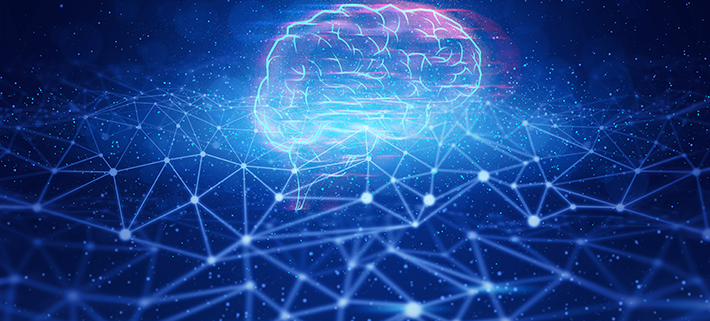The Revolution of Human Resources: The Role of AI in Transforming HR
Human Resources (HR) is a critical function in any organization, responsible for managing the most valuable asset – people. Over the years, HR has evolved from being merely an administrative function to a strategic partner that aligns with an organization’s goals and helps drive business success. And one of the key drivers of this evolution is the integration of Artificial Intelligence (AI) into HR processes. AI is transforming the landscape of HR, revolutionizing how organizations manage their workforce, and unlocking new possibilities for optimizing talent management.
AI is a branch of computer science that enables machines to mimic human intelligence and perform tasks that typically require human intelligence, such as problem-solving, decision-making, and learning. In the HR realm, AI is being leveraged to streamline and automate processes, make data-driven decisions, and enhance employee experience, resulting in improved efficiency, productivity, and overall organizational performance.
Recruitment and Talent Acquisition
Recruitment and talent acquisition are critical HR functions that consume significant time and resources. AI has transformed this process by automating various aspects of recruitment, such as resume screening, candidate shortlisting, and interview scheduling. AI-powered algorithms can analyze resumes and job applications, identify qualified candidates based on predefined criteria, and shortlist the most suitable candidates for further consideration. AI can also analyze data from various sources, such as social media, to gain insights into a candidate’s skills, experience, and cultural fit with the organization.
Moreover, AI has also facilitated the use of chatbots and virtual assistants to enhance candidate engagement and provide personalized experiences. Chatbots can handle routine inquiries, provide information about job openings, and guide candidates through the application process, saving HR professionals valuable time and effort.
Employee Onboarding and Engagement
AI has also played a significant role in improving employee onboarding and engagement. AI-powered platforms can provide personalized onboarding experiences to new hires, ensuring they receive the necessary training and resources to quickly become productive in their roles. AI can also facilitate continuous learning and development by recommending relevant training programs and resources based on an employee’s job role, interests, and performance.
AI has also enabled organizations to monitor employee engagement levels through sentiment analysis and feedback analysis. AI algorithms can analyze data from employee surveys, feedback forms, and social media to gauge employee satisfaction, identify areas of concern, and recommend interventions to enhance employee engagement and retention.
Performance Management and Predictive Analytics
Performance management is a critical HR process that involves setting goals, providing feedback, and evaluating employee performance. AI has revolutionized performance management by enabling real-time monitoring of employee performance, providing feedback based on data-driven insights, and facilitating continuous performance improvement.
AI-powered performance management tools can analyze data from various sources, such as employee performance metrics, feedback from peers and managers, and customer feedback, to generate insights and recommendations. These insights can help organizations identify high-potential employees, address performance gaps, and align individual performance with organizational goals.
Furthermore, AI has also enabled predictive analytics in HR, allowing organizations to make data-driven decisions about workforce planning, succession planning, and talent retention. AI algorithms can analyze historical data, such as employee turnover, performance, and engagement, to identify patterns and trends and provide insights for strategic workforce planning.
Ethical Considerations and Challenges
While AI has transformed HR processes and improved organizational performance, there are ethical considerations and challenges that need to be addressed. Some of the key ethical considerations include ensuring fairness, transparency, and bias-free decision-making in AI algorithms. Bias in AI algorithms can result in discriminatory practices, such as biased hiring decisions, and can perpetuate existing inequalities in the workplace.
Organizations need to be mindful of the ethical implications of using AI in HR processes and take steps to mitigate bias and ensure transparency. This includes regular auditing and monitoring of AI algorithms, training data that is diverse and representative, and employing techniques like explainable AI, where the decision-making process of AI algorithms can be understood and explained. Additionally, organizations should also ensure that employees are aware of the use of AI in HR processes and have mechanisms in place to address any concerns or grievances.
Another challenge of integrating AI in HR is the potential for job displacement. As AI automates certain HR tasks, there may be concerns about job loss for HR professionals. However, organizations can proactively address this by reskilling and upskilling HR staff to adapt to the changing landscape and focus on higher-value tasks that require human expertise, such as strategic planning, employee relations, and ethical decision-making.
The Future of HR with AI
The role of AI in HR is continuously evolving, and the future holds immense potential. As technology advances, we can expect further integration of AI in HR processes, leading to even more efficient and data-driven HR practices. Here are some potential areas where AI can shape the future of HR:
Employee Experience: AI can personalize employee experiences by leveraging data to provide tailored learning and development opportunities, personalized feedback, and customized benefits packages.
Employee Well-being: AI can help organizations monitor and improve employee well-being by analyzing data on health and wellness, and providing recommendations for promoting employee wellness programs.
Talent Analytics: AI can enable organizations to make data-driven decisions about talent acquisition, development, and retention by analyzing large amounts of data and providing insights and recommendations for strategic workforce planning.
Employee Relations: AI can assist in employee relations by analyzing employee sentiment and feedback data to identify areas of concern, predict employee turnover risk, and provide recommendations for improving employee relations and engagement.
Diversity and Inclusion: AI can help organizations address diversity and inclusion challenges by analyzing data for bias and discrimination, and providing insights and recommendations for creating inclusive and diverse workplaces.
Conclusion
AI is revolutionizing HR by automating processes, providing data-driven insights, and enhancing employee experiences. It is helping HR professionals become strategic partners in driving organizational success by leveraging the power of data and technology. However, it is crucial to address ethical considerations, ensure transparency, and proactively manage the potential impact on the workforce. The future of HR with AI holds immense potential, and organizations that embrace this technology will be better positioned to thrive in the ever-evolving world of work. With responsible and ethical use, AI has the potential to transform HR and create a more efficient, data-driven, and employee-centric approach to talent management.




